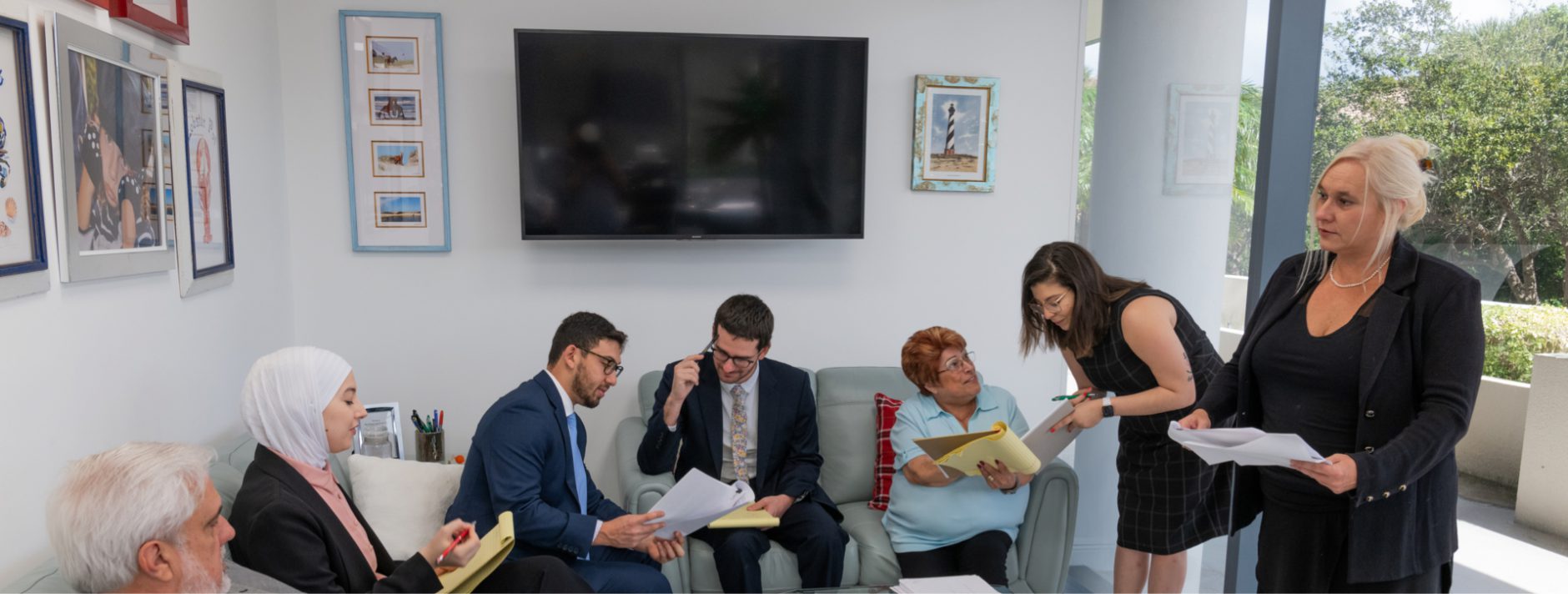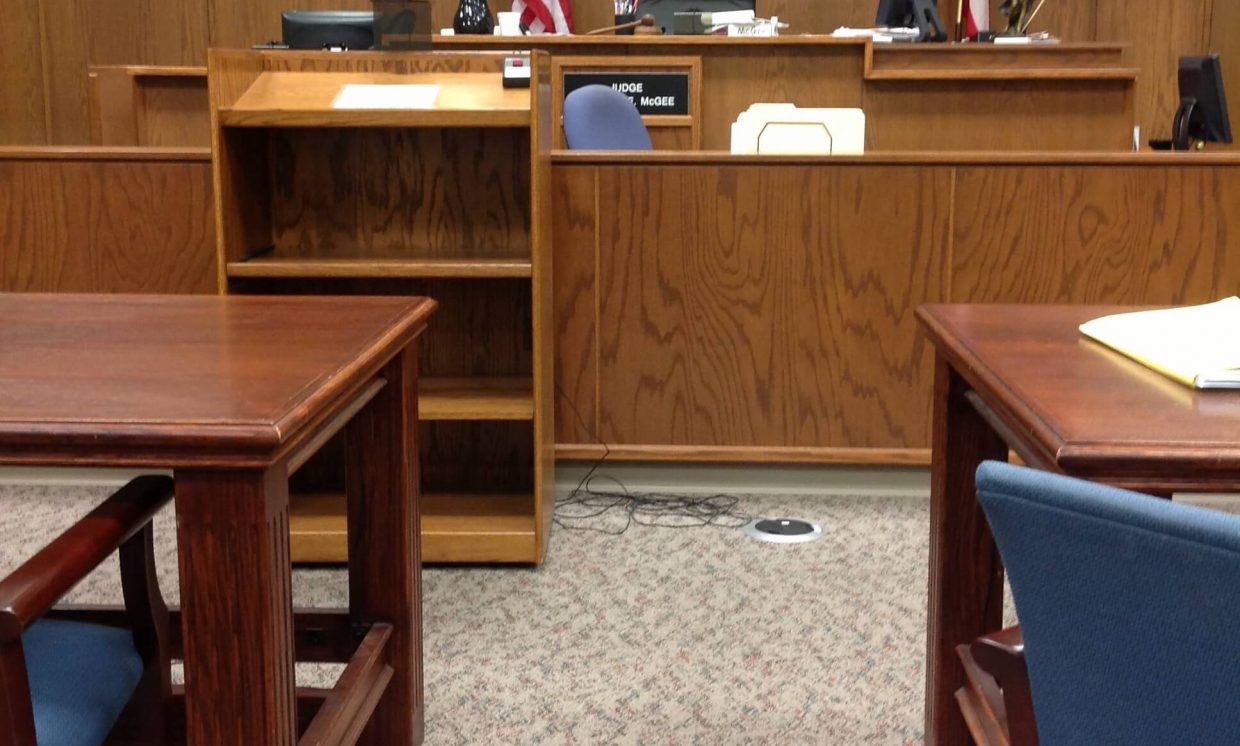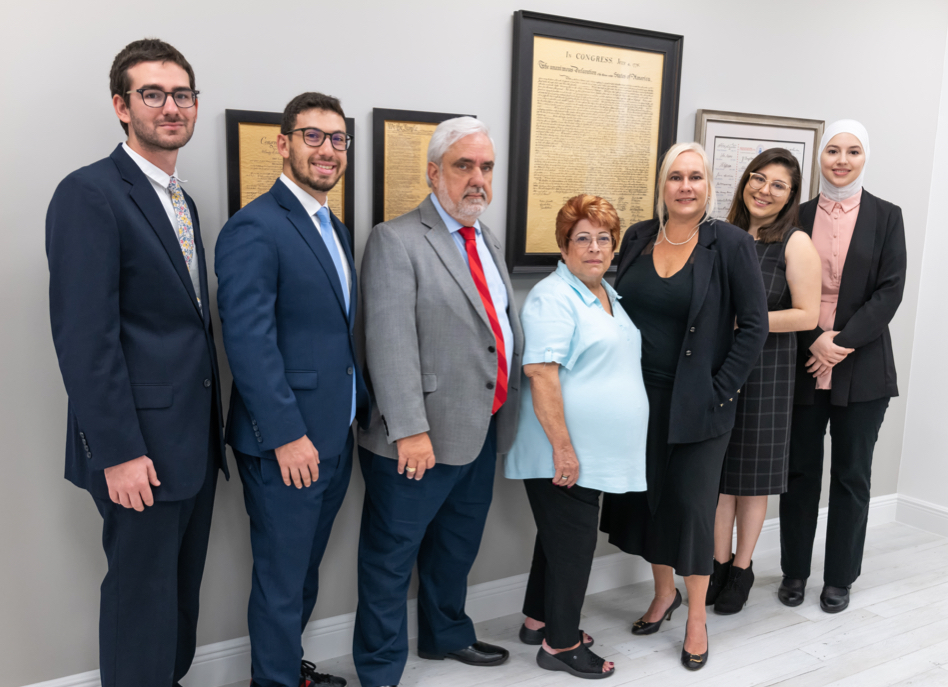What Is Probate?
Probate is a court-supervised process for identifying and gathering the assets of a deceased person. Generally speaking, a personal representative is appointed by the Court to pay the debts of the decedent and to distribute the assets of the decedent to the rightful beneficiaries (if there are estate plans) or if there are not estate plans in order, then the Personal Representative will distribute the assets to the rightful heirs of the decedent. The cost of probate and even the attorney fees of the personal representative are usually paid by the probate estate.
The Florida Probate Code is governed by Chapters 731 – 735 of the Florida Statutes. The Florida probate rules of the court are governed by the Florida Probate Rules – Part I and Part II (Rules 5.010-5.530).
How Does Probate Work?
The probate process is complex and it is recommended that you have legal counsel before initiating the probate process. If you are unsure whether probate is required in your situation, please contact the Horton Law Group, P.A. to schedule a free 30-minute consultation.
There are two types of probate administration under Florida law: formal administration and summary administration (which involves estates valued under $75,000). You can utilize one other form of probate in limited circumstances – it is called the “Disposition of Personal Property Without Administration” probate process. If you are unsure which type of probate you need, please call the Horton Law Group, P.A. at 561-299-0018 to schedule your free 30-minute consultation with an experience probate litigation attorney.
What Does A Personal Representative Do?
The Personal Representative of the Estate has many Duties. It is important to note that a Judge presides over all probate proceedings. There are strict timelines and deadlines for a personal representative to comply. If you miss a deadline, you may be subject to a breach of fiduciary duty lawsuit or removal proceedings.
First, the personal representative must lodge the original will with the clerk of the court within 10 days of receiving information that the testator is dead. (Florida Statutes 732.901). Then the person representative must marshall all of the assets and debts of the decedent. The Personal Representative must all file an inventory of assets and an Initial Accounting. The personal representative must also notify all known and creditors and must Publish Notice to all unknown Creditors . If creditor claims are filed against the estate, the personal representative must decide whether to pay the claims or object. There are very strict deadlines when it comes to credit claims objections. There are many more tasks required by a personal representative. Being a personal representative can be quite a challenge. It is highlight encouraged to retain legal counsel to represent you if you agree to serve as the personal representative of a decedent’s estate. If you are unsure whether probate is required in your situation, please contact the Horton Law Group, P.A. to schedule a free 30-minute consultation.
What Is A Notice Of Administration?
A Notice of Administration is an important document in the Probate arena. If you are served with a Notice of Administrative, you have only a short time to act (generally only 20 days) to object to the validly of a will or a trust filed with the court. Thus, it is prudent that you act expeditiously. Otherwise, you may be forever barred for raising challenged to challenge the validity of the Will on the grounds of undue influence, duress or mental capacity in the future.
How Long Does The Probate Process Take?
This is a tough question. Probate cases usually take 12 months from start to finish. But, there may be delays due to issues or complexities that arise in each individual case.
Can a personal representative get in trouble if he or she does not do a good job?
Yes. A Personal Representative may be subject to removal if a Personal Representative engages in conduct beyond their scope of authority or does something improperly. A Personal Representative has a fiduciary duty to the estate beneficiaries. A personal representative can be is liable to beneficiaries and other interested persons for damage or loss resulting from the breach of this duty. Fla. Stat. § 733.609.
Florida Statute § 733.504 states that a Personal Representative shall be removed if he or she was not qualified to act at the time of appointment. Moreover, a personal representative may be removed for any of the following causes:
(1) Adjudication that the personal representative is incapacitated.
(2) Physical or mental incapacity rendering the personal representative incapable of the discharge of his or her duties.
(3) Failure to comply with any order of the court unless the order has been superseded on appeal.
(4) Failure to account for the sale of property or to produce and exhibit the assets of the estate when so required.
(5) Wasting or maladministration of the estate.
(6) Failure to give bond or security for any purpose.
(7) Conviction of a felony.
(8) Insolvency of, or the appointment of a receiver or liquidator for, any corporate personal representative.
(9) Holding or acquiring conflicting or adverse interests against the estate that will or may interfere with the administration of the estate as a whole. This cause of removal shall not apply to the surviving spouse because of the exercise of the right to the elective share, family allowance, or exemptions, as provided elsewhere in this code.
(10) Revocation of the probate of the decedent’s will that authorized or designated the appointment of the personal representative.
(11) Removal of domicile from Florida, if domicile was a requirement of initial appointment.
(12) The personal representative was qualified to act at the time of appointment but is not now entitled to appointment.
If you have agreed to serve as the personal representative of an estate you should be represented by an experienced probate attorney. Please contact the Horton Law Group, P.A. to schedule a free 30-minute consultation.
What Is The Cost Of Probate?
Probate Fees are set statutorily for simple (non-contested) probate cases. Every probate case is different. Probate can cost thousands of dollars. The expense can easily increase if you do not have knowledgeable legal counsel by your side.
If someone you know has passed away and you need to open probate or if you are served with any forms of probate papers, please call us today. A good attorney represents you in probate court. A Great attorney uses the law as a tool to maneuver through the legal process to deliver you the best possible results. The attorneys at the Horton Law Group provide you stellar representation, quality legal counsel and they will be by your side every step of the way. We are good at what we do. This alone, can make all the difference to you and your family. Please contact the Horton Law Group, P.A. at 561 299 0018 to schedule your free 30- minute consultation with an experience probate litigation attorney.
Can I Recover Attorney Fees?
Under Florida Statute § 733.106, Attorney’s Fees may be awarded in the following circumstances:
- A Personal Representative, or any proponent of a will if the person so nominated does not act within a reasonable time, if in good faith justified in offering the will in due form for probate, shall receive costs and attorney fees from the estate even though probate is denied or revoked.
- Any attorney who has rendered services to an estate may be awarded reasonable compensation from the estate.
- Any attorney’s fees associated with will reformation and modification.
In addition, there are several other ways in which attorney fees can be awarded. For example, if litigation is deemed to be in bad faith or vexatious under Florida Statute 57.105.




























